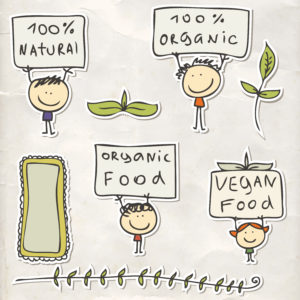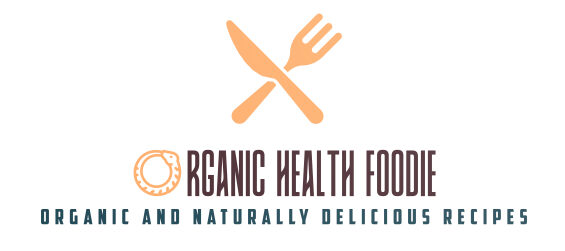 Biodynamic—Made popular by Austrian philosopher Rudolf Steiner, biodynamic farming combines organic methods, including crop rotation and composting with special plant, animal, and mineral preparations and the rhythmic influences of the sun, moon, planets, and stars.
Biodynamic—Made popular by Austrian philosopher Rudolf Steiner, biodynamic farming combines organic methods, including crop rotation and composting with special plant, animal, and mineral preparations and the rhythmic influences of the sun, moon, planets, and stars.
California Certified Organic Farmers (CCOF)—CCOF is an independent party that was the first to provide certification services to all stages of the organic food chain from farms to processors, restaurants, and retailers. CCOF certifies the USDA National Organic Program (NOP) standards and CCOF international standards.
Certified Organic—There are four organic classifications for organic food that meet strict standards set forth by the USDA National Organic Program (NOP). For more information, see our Label Guide.
Certified Naturally Grown—A non-profit organization that supports smaller local farmers that cannot afford to participate in the national organic certification program.
Certifying Agent—Certifying agents are associated with independent organizations who visit organic farms to ensure that USDA NOP standards are upheld.
Composting—Compost is composed of organic matter that is recycled back into the earth. Organic matter may include lawn clippings, vegetable scraps from the kitchen, and untreated papers. These materials are combined and become a nutrient-rich mixture that enriches the soil.
Cover Cropping—A crop that provides temporary protection for delicate seedlings and/or provides a canopy for seasonal soil protection and improvement between normal crop-production periods. Except in orchards where permanent vegetative cover is maintained, cover crops are usually grown for one year or less. When plowed under and incorporated into the soil, cover crops are also referred to as green manure crops.
Crop Rotation—A system of planting where crops vary from season to season; one crop is not grown each year as a new one replaces the one before.
Community Supported Agriculture (CSA)—A CSA is a paid subscription to a farm where people buy a share of the farm and are provided with a variety of fruits and vegetables in return according to what is in season on a routine basis. This is an excellent way to build a relationship with a farmer and support local agriculture.
Eco-conscious—Someone who is referred to as eco-conscious is conscious of the environment and the ecosystems that support it. People who are eco-conscious are aware of how our buying habits, living habits and eating habits impact the earth.
Fair Trade—Items that bear a fair trade label are internationally produced and include banana, pineapple, coffee, and chocolate that typically come from developing countries where workers aren’t always provided the best conditions. Fair trade labeling assures that farmers are paid better-than-conventional prices, are trained on sustainable agriculture practices, work directly with food cooperatives (co-ops), and are often organic.
Farmers’ Market—Farmers’ markets are typically held weekly, usually outside, and are a place where local farmers in any given area gather to sell their produce or specialty goods. Food sold at the market is not always organic, however the selection of organic food is traditionally broader at a Farmers’ Market than at other outlets. These markets are also a great place to develop relationships with the folks who grow your food.
Food Quality Protection Act (FQPA)—Established in 1996, the FQPA amendments changed the way the Environmental Protection Agency (EPA) regulates pesticides. The requirements included a new safety standard—reasonable certainty of no harm—that must be applied to all pesticides used on foods.
Free Range—Of, relating to, or produced by animals, especially poultry, that have access to outside spaces and are permitted to graze or forage and range freely for food rather than being confined in an enclosure or feedlot as with free-range chickens. Sometimes referred to as free-roaming. Conditions for the animals are also typically less crowded.
Genetically Engineered (GE)— Genetically engineered foods have had foreign genes inserted into their genetic codes. Genetic engineering can be done with plants, animals, or microorganisms. GE practices are sometimes referred to as bioengineered or biotechnology.
Genetically Modified Organism (GMO)—A plant, animal, or microorganism that is transformed by genetic engineering. A product that is the result of genetic engineering is called a “product of genetic engineering” or a “derivative of GMOs” depending on the circumstances. It is felt by some that the use of GM crops unnecessarily risks the health of the population and the environment due to insufficient knowledge to safely and predictably modify plant genomes.
Heirloom—An antique variety of a plant popular in the eighteenth, nineteenth, and twentieth centuries, the seeds of which have been passed down from generation to generation.
Humus—The result of organic material being decomposed into a dark soil-like material that contains plant nutrients.
International Federation of Organic Agriculture Movements (IFOAM)—IFOAM’s mission is to lead, unite, and assist the organic movement in its full diversity with a goal of worldwide adoption of ecologically, socially, and economically sound systems that are based on the principles of organic agriculture.
Integrated Pest Management (IPM)—The use of different techniques in combination to control pests, with an emphasis on methods that are least injurious to the environment and most specific to the particular pest. For example, pest-resistant plant varieties, regular monitoring for pests, pesticides, natural predators of the pest, and good stand management practices may be used singly or in combination to control or prevent particular pests.
Irradiation—Exposure to ionizing radiation. Food irradiation is a synthetic process that is not allowed in organic production.
Natural—Natural foods do not contain additives or preservatives but ingredients may have been grown using conventional farming methods or genetically engineered grain. Because natural products are not regulated, it is important not to confuse them with organic!
Northeast Organic Farming Association (NOFA)—Northeast Organic Farming Association is a nonprofit organization of nearly 4,000 farmers, gardeners, and consumers working to promote healthy food, organic farming practices, and a cleaner environment. NOFA has chapters in Connecticut, Massachusetts, New Hampshire, New Jersey, New York, Rhode Island, and Vermont.
National Organic Program (NOP)—In 1990, Congress passed the Organic Food Production Act, which called on the USDA to establish national standards for growing, processing, and marketing organic products. NOP was established to create a system of criteria for certifying organic food by the USDA.
National Organic Standards Board (NOSB)—This group is a government-appointed panel that advises the National Organic Program to assist in the development of standards for substances to be used in organic production and to advise on any other aspects of the implementation of the National Organic Program.
No Preservatives—A product that is not made with any of the ingredients nitrates, nitrites, BHT, and sulfites.
Organic Crop Improvement Association (OCIA International)—A nonprofit, member-owned organization that is one of the world’s oldest and largest leaders in the organic certification industry. OCIA is committed to environmentally sound stewardship and dedicated to providing the highest quality organic certification services and access to global organic markets.
Organic Farming—Agriculture that does not use chemicals, genetic modification, or irradiation, using only natural products. The term “organic farming” was first printed in the 1940 publication, Look to the Land, by Lord Northbourne. Not just a technique, but a philosophy, as well.
Organic Consumers Association (OCA)—A research and action center for the organic and fair trade movements that campaigns for what they refer to as health, justice, and sustainability. The OCA is a proponent of labeling for genetically engineered food.
Organic Matter—Any material that was recently living or produced by a living organism and is capable of being decomposed.
Organic Trade Association (OTA)—The Organic Trade Association is a membership-based business association that focuses on the organic business community in North America. The OTA’s mission is to promote and protect the growth of organic trade to benefit the environment, farmers, the public, and the economy. The OTA is a member of IFOAM.
Paraben-Free—Used to describe products that do not have parabens, which are chemical preservatives added to personal-care products for extending shelf life, and widely used in tens of thousand of types of cosmetic products today. They are suspected of presenting risks to the reproductive system. The four main parabens in use are methyl, ethyl, propyl, and butylparabens.
Persistent Toxic Chemicals—Detrimental materials that remain active for a long time after their application and can be found in the environment years, and even decades, after they were used.
Pesticide—A general term for chemicals used to destroy living things that people consider pests. More specific terms include the following: “Insecticide,” a substance that kills insects; “herbicide,” a substance that kills plants/weeds; “fungicide,” a substance that kills fungi; “fumigant,” a substance that kills all organisms in the soil—a soil sterilizer; and “rodenticide,” a substance that kills rodents.
Quality Assurance International, Inc. (QAI, Inc.)—Quality Assurance International is considered to be the global leader in organic certification services has now certified more than a quarter of a million organic products. QAI offers organic certification under the National Organic Program for producers, processors, private labelers, distributors, retailers, restaurants, wild crop harvesters, greenhouse, mushrooms, and facilities. QAI also offers “fiber certification” under the American Organic Standards.
Soil Association Certification Ltd.— United Kingdoms’ leading certifier. They certify up to 80% of Europe’s organic food solld in that country. For more information, www.soilassociation.org
Sustainable—Capable of being continued with minimal long-term effect on the environment, as with sustainable agriculture, which integrates three main goals: environmental stewardship, farm profitability, and prosperous farming communities. Sustainable development recognizes the need to work with living environments in a balanced manner.
United States Department of Agriculture (USDA)—The National Organic Program (NOP) was created under the aegis of the USDA.
Wild-Crafted—Also appears as “wildcrafted” and sometimes referred to as “wild crops.” A plant gathered in the wild in its natural habitat from a site that is not maintained under cultivation or other agricultural management for manufacturing into a herbal supplement.
SOURCE: ORGANIC.ORG





